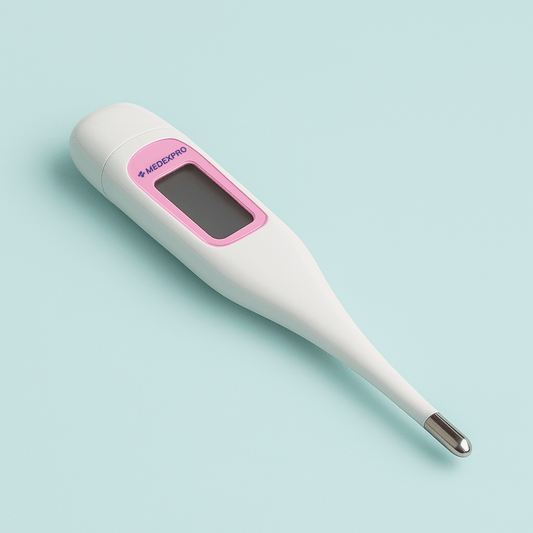Ovulation Isn’t Always Day 14
Why cycle tracking matters and how the “day 14” rule can mislead you.

If you’ve ever Googled “When do I ovulate?” chances are you’ve seen the same answer over and over: day 14 of your cycle. It’s everywhere — in textbooks, on fertility apps, and even in some doctors’ brochures.
But here’s the truth: Ovulation doesn’t always happen on day 14. In fact, it often doesn’t, unless you happen to have a perfectly regular 28-day cycle (which very few people do).
Let’s dig into why the “day 14” rule is more myth than fact, and why understanding your unique cycle is one of the most powerful things you can do when trying to conceive (TTC).
What “Day 14” Really Means
Cycle day 1 is the first day of your period, the day full flow bleeding begins. Ovulation is when your body releases a mature egg from the ovary, usually about halfway through your cycle. That’s where the day 14 idea comes from.
On a 28-day cycle, ovulation tends to occur about 14 days before your next period. Sounds neat and predictable, right?
The catch? Most people don’t have a textbook 28-day cycle. Even if you do, ovulation can still shift month to month.
Why the Day 14 Rule Falls Short
Imagine your cycle is 35 days long. If you ovulated on day 14, your luteal phase would be far too long to be biologically typical. More likely, ovulation would occur closer to day 21.
Or maybe your cycle is only 25 days. Waiting until day 14 to try would be too late; you probably ovulated around day 11.
Relying on the day 14 rule can mean missing your actual fertile window, which is especially frustrating if you’re timing intercourse or using at-home insemination.
It’s About the Luteal Phase, Not the Midpoint
Here’s what does stay relatively consistent: the luteal phase (the time between ovulation and your next period). For most people, this lasts about 12–14 days.
That means:
On a 30-day cycle, ovulation often falls around day 16–18.
On a 24-day cycle, it may happen as early as day 10–12.
So instead of counting forward from your period, it’s more accurate to count backwards from when your next period is due, though that’s not always easy to predict without tracking.
Why Ovulation Tracking Is a Game-Changer
This is where tracking tools come in. They help you understand your body’s rhythm instead of relying on averages.
Methods include:
Ovulation predictor kits (OPKs): Detect the LH surge before ovulation.
Basal body temperature (BBT): Identifies hormonal shifts after ovulation.
Cervical mucus monitoring: Tracks changes in fertile fluid.
Cycle-tracking apps: Help you log and spot patterns over time.
With consistency, you’ll start to see your own unique cycle unfold.
Example: Kat has a 30–31 day cycle and usually ovulates on day 17–18. Taryn’s cycle is shorter, and she ovulates closer to day 13. If they had both relied on the “day 14” rule, they would’ve completely missed their real fertile windows.
You’re Not Broken — You’re Just Not “Average”
If you’ve been following the day 14 guideline without success, it doesn’t mean something’s wrong with you. It might just mean you’ve been aiming for the wrong days.
Cycles vary, even for the same person, from month to month. Stress, sleep, nutrition, and countless other factors all play a role. The key is learning your timing.
The bottom line: precision beats prediction. Knowing when you ovulate is one of the most empowering steps you can take on your TTC journey.
Why We Created Ovadetect
Taryn designed our Ovadetect Test Strips after she and Kat experienced these frustrations. They’re wider, clearer, and more sensitive than standard strips, giving you accurate LH surge readings without the guesswork.
Because you shouldn’t have to rely on an outdated “rule of thumb.” You deserve tools that reflect your body, not the average body in a medical chart.
Learn your cycle. Trust the signs. Believe in your body.
And remember - you’re never alone on this journey.

If you need help going through any block, talking with a TTC consultant can help! Book a FREE 15-minute virtual consult today!
Book a TTC consultation











